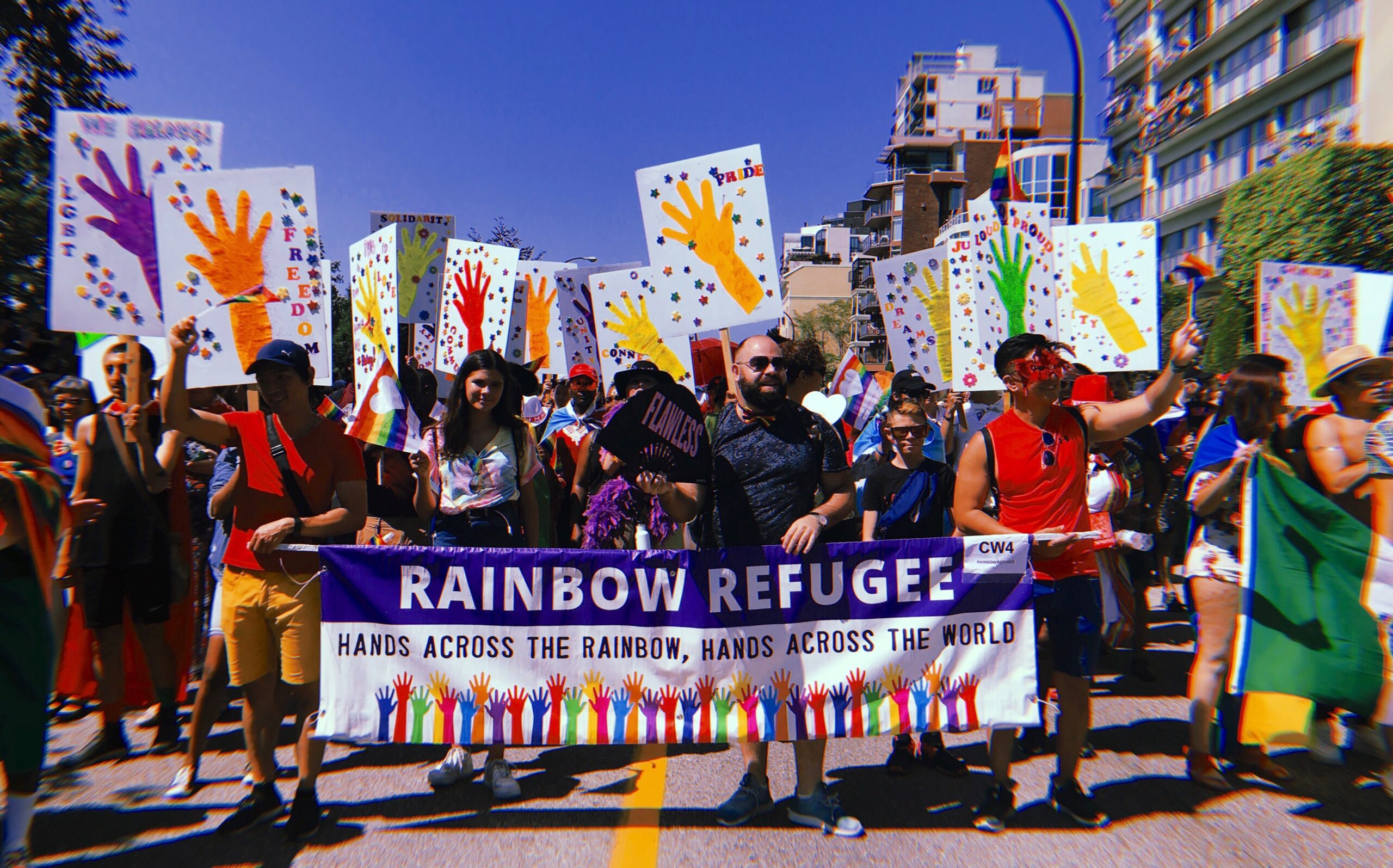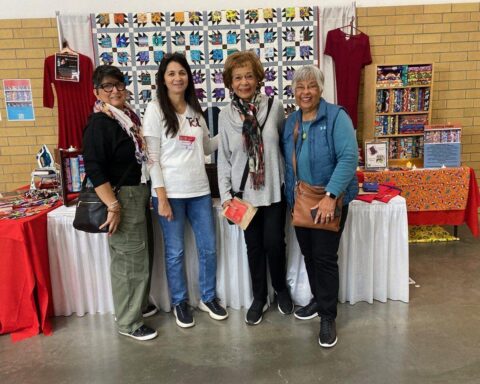Though human rights organizations are welcoming Canada’s new pathway to permanent residence for Human Rights Defenders (HRDs) and their families, members say the government needs to open up more inclusive space to match the lived reality of refugees escaping different kinds of persecution, including sexual and gender-based discrimination.
The new initiative will help “resettle up to 250 human rights defenders per year, including their family members,” according to a press release. These dedicated spaces will be added to the current Government-Assisted Refugees Program.
But advocates argue that these limited spaces are insufficient to meet the specific needs of different HRDs and that the definition of HRDs itself needs to be reviewed.
“Voices at Risk,” Canada’s 2019 guidelines to supporting HRDs, defines HRDs as “people who, individually or with others, act to promote or protect human rights through peaceful means.” This includes journalists, grassroots activists, women’s rights, land rights and LGBTQ2I+ rights defenders who may not define themselves as HRDs.
Aleks Dughman-Manzur is the programming director of Rainbow Refugee, a Vancouver-based non-profit supporting people seeking refugee protection from persecution based on sexual orientation, gender identity, gender expression or HIV status.
Dughman-Manzur says that as well as being persecuted by the state and corporations, LGBTQ2I+ HRDs face criminalization and persecution by fundamentalists across religions, society at large and often their own families. They feel further clarity is needed around the definition of a human rights defender, which may need to be broadened in the context of LGBTQ2I+ communities.
“Can we consider a trans woman as a human rights defender just because of her identity?” they ask. “Because the fact that she’s publicly known as a trans person is an act of resistance.”
More Needed
In 2018, Canada resettled more refugees than any other country worldwide, surpassing the US for the first time in over 30 years. Yet, overall, Dughman-Manzur says resettlement by the Western world “is minimal.”
According to the UN Refugee Agency (UNHCR), “there were 20.7 million refugees of concern … around the world at the end of 2020, but less than one per cent of refugees are resettled each year.”
As Rainbow Refugee receives thousands of yearly assistance requests, Dughman-Manzur hopes the government will progressively increase the spaces offered for HRDs over time to better meet the extensive need.
Furthermore, currently, to qualify as a refugee requires being outside one’s country. However, the new pathway excludes HRDs stuck inside their home country from which they’re attempting to escape persecution.
Dughman-Manzur would like the Canadian government to expand the program to create a pathway of safety for those with “less access to resources and most marginalized, and whose gender identity prevents them from traveling freely.”
Andrew Anderson, executive director of Front Line Defenders, an international NGO which documented over 300 killings of HRDs in 2020, says the program also needs to afford more flexibility to HRDs, including helping them continue to do their work in their respective countries where possible. He says that’s why Front Line Defenders would like the Canadian government to provide HRDs multiple entry visas, which would allow them to temporarily relocate according to the level of risk they are facing.
Resettlement, he says, is the pathway of last resort, but an important option for HRDs whose lives and those of their families are on the line.
Front Line Defenders will work with Protectdefenders.eu and the UNHCR to identify HRDs in need of resettlement to Canada, prioritizing those at higher risk including women, journalists and LGBTQ2I+ HRDs.
Anderson says real, sustainable change can only be made by activists working at the local and national level, so supporting and protecting them is critical for the human rights movement.
Front Line Defenders’ mission to “Protect One Empower One Thousand” aims to invert the “Kill one, terrify a thousand” tactic in Chinese general Sun Tzu’s The Art of War.
“If you can support HRDs to continue to speak out in spite of the oppression, then that encourages others to feel that they can also join in the struggle for human rights,” Anderson says.
Fleeing persecution
Arzu Yildiz came to Canada in 2016 as a Turkish refugee journalist. She could have been a potential candidate under the HRD stream, had it existed at the time.
Yildiz worked as a court reporter for a national newspaper in Ankara, where she saw firsthand the importance of justice.
After the failed coup d’état on July 15, 2016, Yildiz posted a statement on Facebook condemning a video of soldiers, academics and teachers being tortured after being arrested, which she had seen on a government news agency, and reminding the state of the international rule of law. She was accused of creating propaganda, and became the first journalist in the country to have an arrest warrant issued against her, and the only female journalist on the government’s hit list.
After living in hiding with her two young daughters for five months, Yildiz managed to cross the border and spent two weeks in a refugee camp in Greece. To protect her seven-year-old and seven-month-old, she left them with her parents in Turkey.
“Every mother wants to be with their kids, but every mother wants to save their kids’ life,” she says.
Upon leaving, her former identity dissolved as she understood she was now a refugee and part of the global issue of displacement.
She now identifies as “a member of the biggest family,” she says. “The refugee family…becoming a human, not a citizen.”
“No one will bring you justice”
Yildiz is grateful that through New Canadian Media (NCM), she has had the opportunity to re-enter the journalism field in Canada despite the language barrier.
But other refugee journalists have not been so lucky.
“If they don’t do their job, they lose who they are,” she says. “They die day by day.”
Currently, while writing for NCM and Turkish news channels, Yildiz also works for Uber Eats to support her daughters, who joined her in Canada after a prolonged separation. For her, being a mother means being a role model.
“I try to show them to be strong,” she says. “No one will bring you justice. You should go and take it.” Dughman-Manzur says that while some forms of persecution may end when LGBTQ2I+ people leave their country, others persist.
“Once you’re here [in Canada] you are safer, but as an LGBTQ2I+ person you are never safe,” they say.
They highlight the need to continue to dismantle racism and transphobia, so people do not “exchange one form of persecution for another.” And, they say, this work needs to be done through a decolonizing lens, actively engaging Indigenous communities in the conversation.
Like Dughman-Manzur, Yildiz feels the spaces provided for the resettlement of HRDs is inadequate, considering not only the extensive need but the contributions HRDs could make to Canada.
“They bring their experience, not just their pain, not just tears (but) also love; not silence, but a voice,” she says. “How important these things are to create equality.”
Daniela Cohen is a freelance journalist and writer of South African origin currently based in Vancouver, B.C. Her work has been published in the Canadian Immigrant, The/La Source Newspaper, the African blog, ZEKE magazine, eJewish Philanthropy, and Living Hyphen. Daniela's particular areas of interest are migration, justice, equity, diversity and inclusion. She is also the co-founder of Identity Pages, a youth writing mentorship program.





